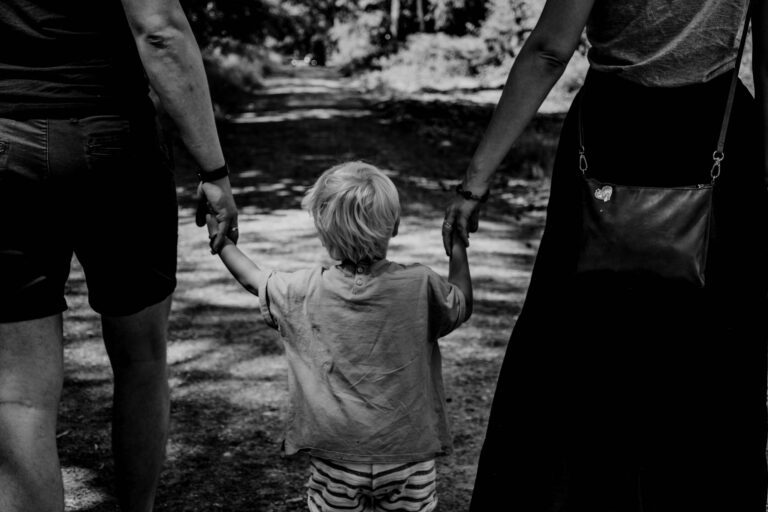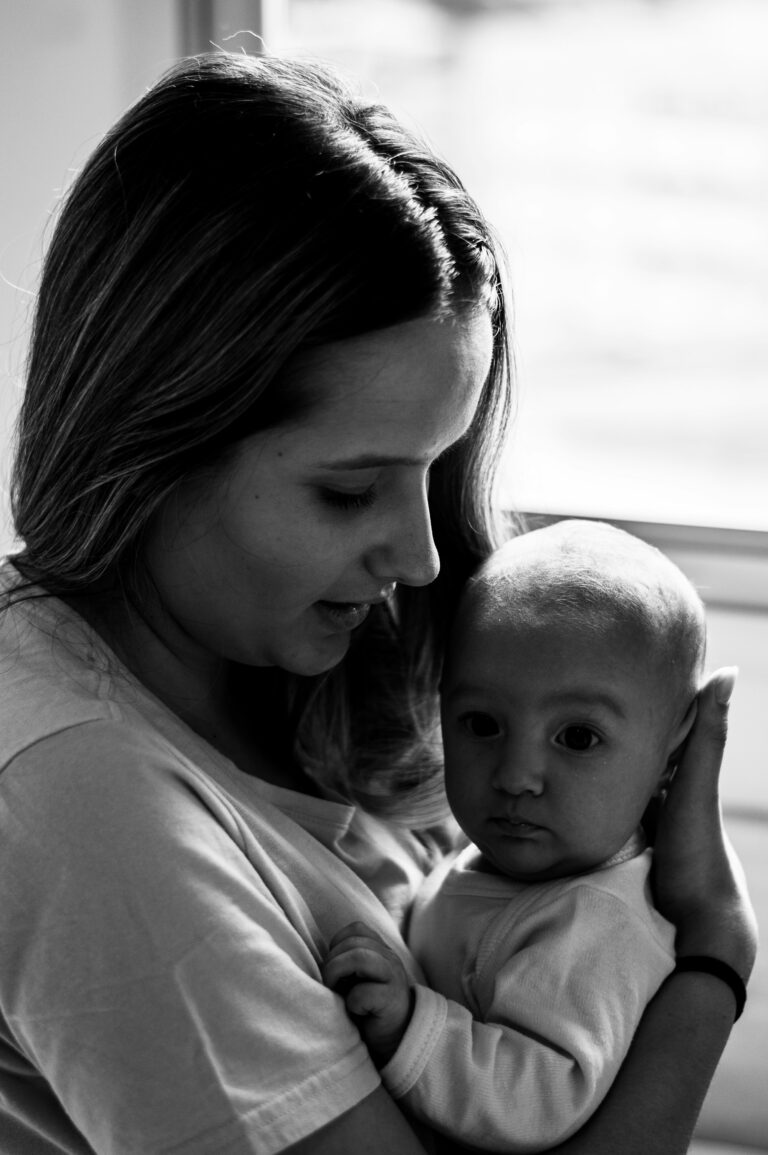Welcoming a new member into the family transforms daily life in unexpected and sometimes bewildering ways. Parents often discover themselves tangled in a patchwork of emotions: joy, exhaustion, anxiety, even confusion. When the conversation turns to postpartum mental health, focus typically settles on mothers. Yet, fathers are not immune to upheaval—paternal postpartum depression may quietly seep in, sometimes masked by societal expectations or internal doubts. Sleep deprivation, abrupt identity shifts, and the weight of new responsibilities create fertile ground for mood disturbances. You might be wondering: what does paternal postpartum depression really look like, how can it disrupt family dynamics, and—most importantly—what can help? This exploration unpacks the scientific insights, aiming to equip parents with understanding, practical advice, and avenues for support.
Understanding Paternal Postpartum Depression
Paternal postpartum depression is a mood disorder emerging in fathers, often manifesting within three to six months following the arrival of a newborn. Unlike the hormonal cascades experienced by mothers, fathers may face psychological and social currents that crash unexpectedly. The transition to fatherhood, complicated by cultural norms that exalt stoicism, often leaves men struggling in silence.
The symptoms are not uniform, nor are the timelines. Fathers may feel an inexplicable sadness, persistent irritability, or relentless fatigue—sometimes, all at once. Irritability replaces tears, withdrawal overshadows engagement, and nights become measured by restless mind-racing rather than restful sleep. The phenomenon deserves attention: research suggests approximately 8-13% of fathers develop symptoms, and the prevalence spikes dramatically if the mother is also affected.
Medical studies highlight that postnatal hormonal adjustments occur in fathers too. Fluctuations in testosterone and stress hormones such as cortisol or prolactin can subtly undermine emotional stability. Does a night of broken sleep alone explain it? Not entirely—but chronic sleep disruption remains one of the dominant triggers for mood decline after childbirth.
Unique Manifestations: How Paternal Symptoms Differ
Why is paternal postpartum depression so often hidden in plain sight? For fathers, depression rarely follows the classic script. Instead, it might resemble:
- Heightened irritability or quick temper replacing sadness
- Risk-taking behaviors or escapism, such as longer work hours or increased alcohol consumption
- Detachment from family life, friends, and previously enjoyable activities
- Somatic expressions: persistent headaches, gastrointestinal discomfort, appetite or weight changes
- Diminished motivation and concentration difficulties, especially apparent when reintegrating into the workplace
While mothers may verbalize feelings of despair, fathers might cope through avoidance or denial. Clinical screening tools like the Edinburgh Postnatal Depression Scale have been adapted for men, but subtle manifestations—anger, withdrawal, somatic complaints—can still confound detection.
Decoding Causes and Risk Factors
What tilts some fathers towards paternal postpartum depression, while others sidestep it? The answer intertwines biology, prior psychological history, social stressors, and environmental upheaval.
- Hormonal adaptations: Reductions in androgens such as testosterone and fluctuations in stress regulatory hormones subtly influence mood and resilience.
- Previous mental health challenges: Any record of depression or anxiety, whether personal or in the family, magnifies vulnerability.
- Relationship turbulence: Major disruptions in family structure, strained communication with a partner, or mismatches in parenting expectations can amplify emotional strain.
- Socioeconomic and demographic aspects: Younger fathers, unmarried men, those with limited education or greater financial instability, and those rigidly adhering to traditional gender identities may face heightened risk.
- Partner’s mental health: Co-occurrence is common—studies indicate that if the mother is depressed postpartum, nearly half of all fathers might encounter depression, underscoring the interconnectedness of parental well-being.
Spotting the Signs: A Parent’s Checklist
Paternal postpartum depression may unfurl gradually or strike with alarming swiftness. Key indicators, often downplayed or disguised, can include:
- Ongoing sadness, or a persistent, unshakable sense of emptiness
- Sudden mood swings or unexplained irritability
- Overwhelming fatigue unrelated to sleep deprivation alone
- Preoccupations with the baby’s safety, sometimes escalating to anxiety attacks
- Withdrawal from parenting involvement, social interaction, or even partnership duties
- Loss of interest in previous hobbies or forms of relaxation
- Physical ailments—recurrent headaches, stomach pain, muscular tension
- Concentration lapses and poor work performance
- Subtle shifts: anger in place of sadness, overcompensation at work or avoidance of home life, risky behaviors
Consider—has the once engaged, affectionate partner become distant, restless, or preoccupied? A subtle shift in the usual family rhythm might be more than temporary sleep loss; it may signal underlying mood disturbances that require recognition and care.
Barriers to Recognition and Help-Seeking
Why do so many fathers miss—or dismiss—these signals? Barriers emerge from every direction.
- Cultural pressure to “tough it out”: Societal notions of masculinity often promote endurance over vulnerability. Fathers may fear judgment or perceive mental health struggles as personal weakness.
- Systemic oversight: Medical focus typically gravitates toward the mother-baby dyad, unintentionally sidelining paternal needs.
- Screening tool limitations: Developed primarily for mothers, conventional questionnaires might omit manifestations typical in men, like somatic complaints or anger rather than overt sadness.
- Personal minimization: Denial or lack of awareness leads fathers to attribute symptoms simply to tiredness or stress, delaying intervention.
Ripple Effects on Family and Child Development
Ignoring paternal postpartum depression does not isolate its consequences to one individual. The impacts radiate:
- Fathers’ wellbeing: Left unchecked, depressive symptoms can seed substance abuse, increased physical health issues, and enduring relationship strain.
- Relationship quality: Emotional distance, misunderstandings, or conflict with a partner often escalate when depression festers unaddressed.
- Child development: Scientific literature identifies children with depressed fathers as more likely to develop behavioral concerns (such as conduct issues or anxiety), attachment difficulties, and struggles with social skills and emotional regulation.
- Compounded risk when both parents are affected: Dual depression in parents amplifies risks for the child’s early development, social adaptation, and emotional health.
Early Screening, Prevention, and Intervention Strategies
What can help break this cycle? Early, systematic approaches offer hope:
- Routine inclusion of fathers in mental health assessments after childbirth, especially when risk factors such as prior psychological issues are present
- Pre-birth education and realistic preparation: Parenting workshops, informational groups, or resources can demystify doubts and normalize common challenges
- Targeted support for at-risk fathers: Early psychological counseling, stress management techniques, and support groups offer early tools for resilience
- Medical engagement: Increasingly, pediatricians and family health professionals are trained to recognize and refer fathers demonstrating warning signs of depressive symptoms
Evidence-Based Treatment and Recovery
No two journeys to recovery from paternal postpartum depression look identical, but several pillars have demonstrated efficacy:
- Psychotherapy: Individual therapy (like cognitive behavioral therapy), couple therapy, or group sessions pave the way for emotional processing, problem-solving, and promoting secure parent-infant relationships.
- Pharmacological support: In moderate-to-severe cases, antidepressant medications—always under medical supervision—can correct neurochemical imbalances. These do not replace therapy but occasionally serve as a vital complement.
- Lifestyle modification: Optimizing sleep, balanced nutrition, regular physical activity, and limiting substances like alcohol provide a steady foundation for recovery.
- Peer support and community connection: Sharing experiences with other new fathers (face-to-face or virtually) lessens stigma, validates emotions, and fosters belonging.
- Open communication: Encouraging honest discussions with partners, friends, and professionals diminishes isolation and flags when more specialized intervention is needed.
Creating a Supportive and Resilient Family Environment
Every family’s path through early parenthood is unique, but small, intentional actions can enhance resilience and connection:
- Validating the paternal experience: Partners, extended family, and professionals benefit from creating guilt-free spaces where fathers can safely express emotions.
- Shared parenting involvement: Engaging fathers in hands-on caregiving—diapering, soothing, sharing nighttime feedings, playful interaction—fortifies the parent-child bond while redistributing the emotional weight of early parenthood.
- Educational empowerment: Leveraging parenting resources, local community organizations, or support networks arms parents with strategies for self-care and relational wellbeing.
- Challenging stigma: Extending awareness about paternal postpartum depression to workplaces, healthcare systems, and parenting communities fosters open conversation and earlier help-seeking.
Key Takeaways
- Paternal postpartum depression is an authentic, common, and medically recognized condition—affecting up to one in eight new fathers, sometimes more if the mother is also affected.
- Symptoms may include sadness, irritability, withdrawal, risk-taking behaviors, or physical complaints, often surfacing months after the birth.
- Multiple factors increase risk: changes in hormonal balance, prior mental health conditions, relationship stress, and societal expectations.
- Early recognition and tailored support—ranging from mental health screening to evidence-based therapy and peer connection—change the trajectory for fathers, children, and entire families.
- Compassionate, informed environments at home and in the community accelerate recovery, while open conversation gradually erodes the stigma that keeps many parents from seeking help.
- Practical support, medical intervention, and shared parenting responsibilities buffer families against the lasting consequences of untreated depression.
- For personalized advice and free health questionnaires for children, parents can download the Heloa app.
Facing paternal postpartum depression calls not for silent endurance but for proactive, compassionate action—firmer family ties, improved child wellbeing, and healthier journeys into parenthood can result.
Questions Parents Ask
Can paternal postpartum depression affect the bond between father and baby?
Absolutely, paternal postpartum depression can make it challenging for some fathers to connect with their newborn. When a dad feels persistently sad, anxious, or exhausted, moments of bonding may seem overwhelming or out of reach. It’s important to keep in mind that this situation is not a reflection of one’s love or capability as a parent. Over time, with support and gentle encouragement, many fathers find that closeness and positive exchanges with their baby gradually increase. If the struggle to bond persists or causes distress, seeking advice from a professional can provide useful strategies and reassurance.
What can partners or family members do to support a father experiencing postpartum depression?
Loved ones play a key role in supporting a new father. Gentle listening, offering help with daily tasks, and encouraging open conversations about feelings can truly make a difference. Sometimes, just knowing someone cares or is present can lessen a sense of isolation. If the father is open to it, suggesting contact with a healthcare provider experienced in parental mental health can be a supportive step. Respect and patience are essential; recovery isn’t always quick, but with understanding and kindness, a more peaceful family dynamic can be fostered.
Are there specific risk factors that make some fathers more likely to develop postpartum depression?
Yes, while any new dad may experience mood changes, certain factors can make postpartum depression more likely. These include a previous history of depression or anxiety, ongoing relationship difficulties, lack of social support, challenging life changes, or significant stress related to work or finances. Hormonal shifts and changes in sleep patterns can also play a part. Rassurez-vous, recognizing these risks early makes it possible to find effective ways to protect one’s emotional well-being and seek help if needed.
Further reading:









